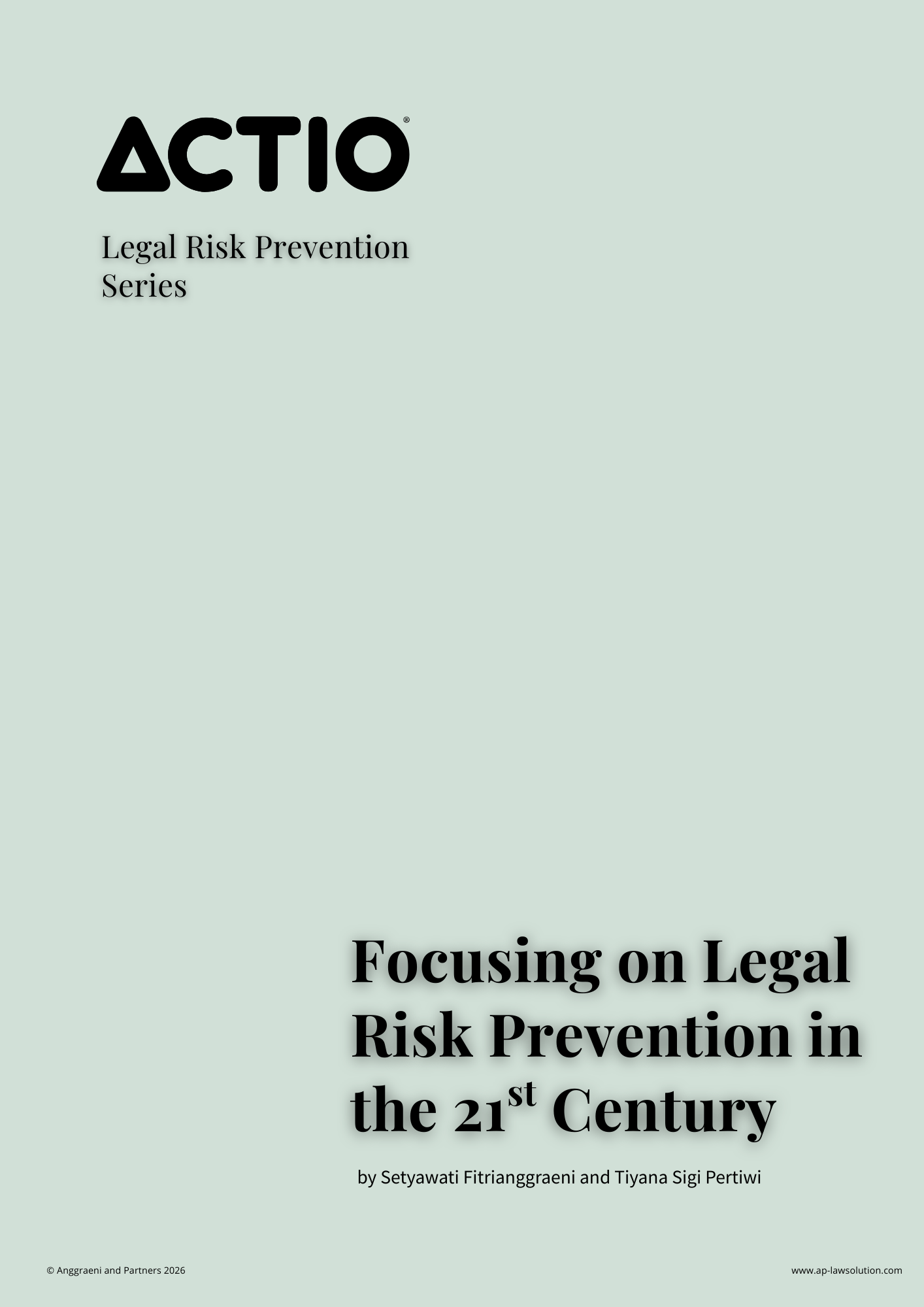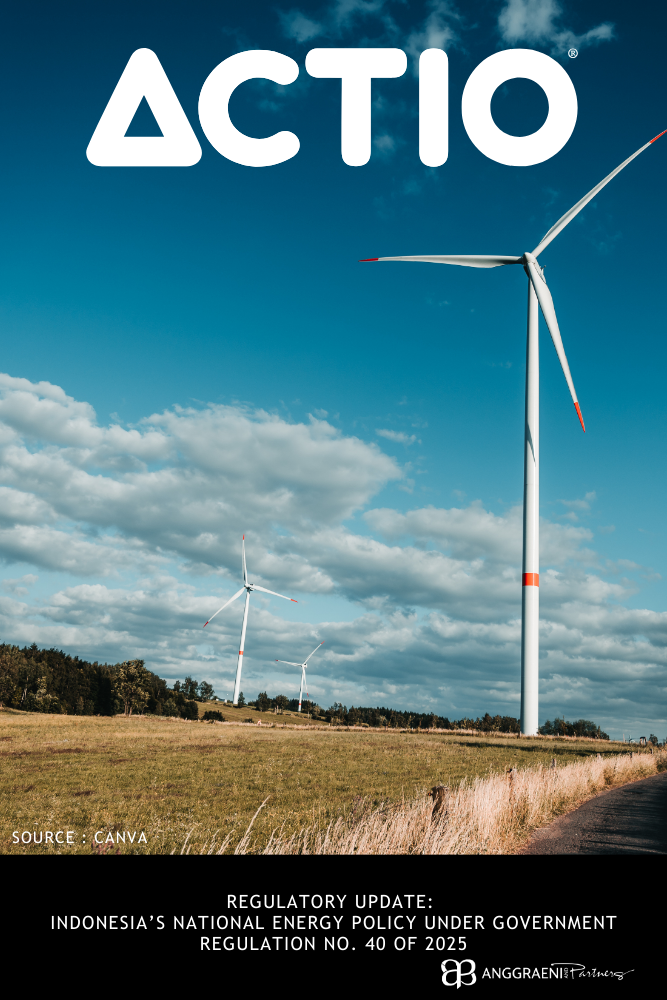- Home
- Capabilities
- ACTIO® Hub
- About Us
- Connect with Us
- AP Library
THE BLETCHLEY DECLARATION: A NEW PARADIGM FOR GLOBAL AI SAFETY
By Setyawati Fitrianggraeni, Hary Elias, Sri Purnama[1]
BACKGROUND
On the 1st and 2nd of November 2023, the 2023 Artificial Intelligence Safety Summit marked a significant milestone in the international discourse on the safety and regulation of Artificial Intelligence. Indonesia as well as representatives from other nations[1] convened at the AI Safety Summit, culminating in a unified stance known as the Bletchley Declaration. Hosted by the United Kingdom, the summit convened nations and leading intellectuals worldwide to foster rapid, collaborative action on AI development. The summit aimed to promote inclusive growth, sustainable development, and innovation whilst safeguarding human rights and fundamental freedoms. It also sought to cultivate public trust in AI systems and maximise their potentials. The Bletchley Declaration emerged as a manifesto, calling all stakeholders to ensure AI’s safety through unified action, capacity building, and leveraging AI to support sustainable growth and bridge the developmental divide.[3]
KEY REQUIREMENTS
The cooperation fostered at the summit crystallised around several key agendas addressing the forefront of AI development:
IMPLICATIONS
All entities[6] involved in AI usage will be held accountable for their actions, addressing new business risks such as misinformation, plagiarism, copyright infringements, and harmful contents.[7]
The Bletchley Declaration can be the legal reference for every participating nation to draft their own regulation that governs AI or to adjust and improve existing regulations.
CONSIDER
OTHER CONSIDERATIONS
One major criticism of the Declaration is that it will not go far enough to materially affect the work of programmers and software developers who are at the forefront of AI development. AI development is typically conducted by not only big-tech, but also smaller developers who are far removed from direct government control. The Internet, being porous, allows for new AI software to be developed, and distributed almost free from any State intervention. Consequently, making international rules, and harmonizing laws, may not stem the tide of unsafe AI as envisaged by the Declaration. It is worth noting that the international community faced the same challenges in stem cell research, and on the issue of human cloning. It remains to be seen whether the international community can one day have rules in which all stakeholders adopt common rules and safeguards for the good of humanity.
It will also be interesting to watch how independent AI developers react to any legislation passed by their governments. In line with the Bletchley Declaration, governments are encouraged to pass laws to promote safety. These laws also affect national and international research on AI safety and are ostensibly to extend and deepen scientific knowledge, with a view to facilitating the provision of the best science available for policymaking and the public good. Detractors of the Declaration will argue that such legislation will be tantamount to meddling, and unnecessary government intervention, and that governments are simply trying to profit on the backs of private AI developers. We live in interesting times indeed.
CONCLUSION
This is a stepping stone for everyone to take caution and interest in the future of technological advancement of Artificial Intelligence Systems. We advised all our clients with operations or interests in the topic to follow our updates of this declaration and act accordingly, to minimize unnecessary legal risks.
[1] Setyawati Fitrianggraeni holds the position of Managing Partner at Anggraeni and Partners in Indonesia. She also serves as an Assistant Professor at the Faculty of Law, University ofIndonesia, and is currently pursuing a PhD at the World Maritime University in Malmo, Sweden. Dr. Hary Elias is a General Counsel at Anggraeni and Partners. Lastly, this article is co-authored by Sri Purnama, Junior Legal Research Analyst at Anggraeni and Partners.
[1] The countries represented were: Australia, Brazil, Canada, Chile, China, European Union, France, Germany, India, Indonesia, Ireland, Israel, Italy, Japan, Kenya, Kingdom of Saudi Arabia, Netherlands, Nigeria, The Philippines, Republic of Korea, Rwanda, Singapore, Spain, Switzerland, Turkiye, Ukraine, United Arab Emirates, United Kingdom of Great Britain and Northern Ireland, United States of America.
[2] “The Bletchley Declaration by Countries Attending the AI Safety Summit, 1-2 November 2023”. Published on 1 November 2023. https://www.gov.uk/government/publications/ai-safety-summit-2023-the-bletchley-declaration/the-bletchley-declaration-by-countries-attending-the-ai-safety-summit-1-2-november-2023. Accessed on 3 November 2023.
[3] Ibid.
[4] Ibid.
[5] Ibid.
[6] In the context of the Bletchley Declaration, entities refer to all individuals, organisations, corporations, governments, and any other groups involved in the design, development, deployment, or use of AI technologies. This includes but is not limited to AI researchers, developers, manufacturers, service providers, and end-users.
[7] George, Lawton. “Generative AI ethics: 8 Biggest concerns and risks”. https://www.techtarget.com/searchenterpriseai/tip/Generative-AI-ethics-8-biggest-concerns#:~:text=Like%20other%20forms%20of%20AI,copyright%20infringements%20and%20harmful%20content. Accessed on 3 November 2023.
DISCLAIMER:
This disclaimer applies to the publication of articles by Anggraeni and Partners. By accessing or reading any articles published by Anggraeni and Partners, you acknowledge and agree to the terms of this disclaimer:
No Legal Advice: The articles published by Anggraeni and Partners are for informational purposes only and do not constitute legal advice. The information provided in the articles is not intended to create an attorney-client relationship between Anggraeni and Partners and the reader. The articles should not be relied upon as a substitute for seeking professional legal advice. For specific legal advice tailored to your individual circumstances, please consult a qualified attorney.
Accuracy and Completeness: Anggraeni and Partners strive to ensure the accuracy and completeness of the information presented in the articles. However, we do not warrant or guarantee the accuracy, currency, or completeness of the information. Laws and legal interpretations may vary, and the information in the articles may not be applicable to your jurisdiction or specific situation. Therefore, Anggraeni and Partners disclaim any liability for any errors or omissions in the articles.
No Endorsement: Any references or mentions of third-party organizations, products, services, or websites in the articles are for informational purposes only and do not constitute an endorsement or recommendation by Anggraeni and Partners. We do not assume responsibility for the accuracy, quality, or reliability of any third-party information or services mentioned in the articles.
No Liability: Anggraeni and Partners, its partners, attorneys, employees, or affiliates shall not be liable for any direct, indirect, incidental, consequential, or special damages arising out of or in connection with the use of the articles or reliance on any information contained therein. This includes but is not limited to, loss of data, loss of profits, or damages resulting from the use or inability to use the articles.
No Attorney-Client Relationship: Reading or accessing the articles does not establish an attorney-client relationship between Anggraeni and Partners and the reader. The information provided in the articles is general in nature and may not be applicable to your specific legal situation. Any communication with Anggraeni and Partners through the articles or any contact form on the website does not create an attorney-client relationship or establish confidentiality.
By accessing or reading the articles, you acknowledge that you have read, understood, and agreed to this disclaimer. If you do not agree with any part of this disclaimer, please refrain from accessing or reading the articles published by Anggraeni and Partners.
For further information, please contact:
P: 6221. 7278 7678, 72795001
H: +62 811 8800 427
Anggraeni and Partners, an Indonesian law practice with a worldwide vision, provides comprehensive legal solutions using forward-thinking strategies. We help clients manage legal risk and resolve disputes on admiralty and maritime law, complicated energy and commercial issues, arbitration and litigation, tortious claims handling, and cyber tech law.
S.F. Anggraeni
Managing Partner
Hary Elias
General Counsel
haryelias@ap-lawsolution.net


